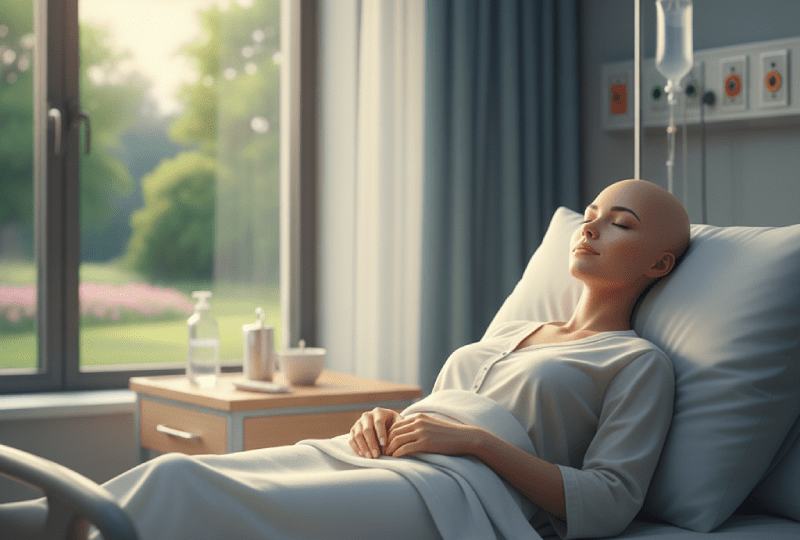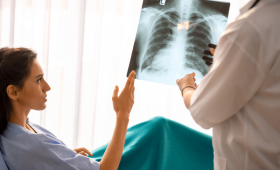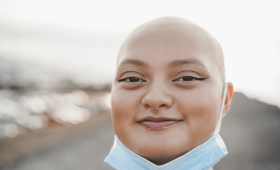What Is Lung Cancer And What Are Its Main Types?
Lung cancer is a disease that begins with the uncontrolled growth of cells in the lung tissue and has the potential to spread to other parts of the body. There are two main types: Small Cell Lung Cancer (SCLC) and Non-Small Cell Lung Cancer (NSCLC). NSCLC accounts for approximately 85% of cases and usually grows more slowly; its subtypes include adenocarcinoma and squamous cell carcinoma. SCLC is a more aggressive type that grows and spreads faster but may respond better to chemotherapy and radiation. Accurate diagnosis and type determination are vital for establishing the most effective treatment plan. You can contact Cure Holiday consultants to learn about personalized treatment options.
What Are The Initial Symptoms Of Lung Cancer?
The initial symptoms of lung cancer can often be general enough to be mistaken for other illnesses, so caution is necessary. The most common symptoms include a persistent cough that lasts longer than two weeks and does not go away, shortness of breath, chest pain, and hoarseness. As the disease progresses, loss of appetite, unexplained weight loss, and constant fatigue may be observed. Additionally, frequent recurrent lung infections or coughing up blood (hemoptysis) are important warning signs. Seeking medical evaluation immediately upon noticing such symptoms will increase the chances of early diagnosis. Cure Holiday can assist you with the coordination of your treatment process.
What Are The Risk Factors For Lung Cancer?
The biggest and most well-known risk factor for lung cancer is smoking; both active smokers and passive smokers are at risk. The duration and amount of exposure to cigarette smoke directly increase the risk. A second major risk factor is exposure to Radon gas, a radioactive gas found naturally in homes and certain regions. Furthermore, exposure to occupational chemicals such as asbestos, arsenic, and chromium also increases the risk. A family history of lung cancer and previous radiation therapy are also among the risk groups. You can seek health consultation from Cure Holiday to assess your risks and take preventative steps.
What Tests Are Applied In The Diagnosis Process?
The lung cancer diagnosis process involves a series of imaging and biopsy procedures when suspicion arises. Initially, a chest X-ray, which shows the condition of the lung, and low-dose computed tomography (CT), which provides more detailed information, are typically used. For a definitive diagnosis, a cell or tissue sample must be taken from the suspicious area. This procedure is performed via bronchoscopy or needle biopsy (guided by imaging). The biopsy material is examined in a pathology laboratory to determine the type and genetic characteristics of the cancer. You can contact Cure Holiday to plan fast and accurate diagnostic tests.
What Is Staging And How Does It Affect Treatment?
Staging in lung cancer is the process of determining the extent of the cancer’s spread in the body and is the most critical step directly influencing the treatment strategy. It typically uses the TNM system to determine the size of the cancer, whether it has spread to lymph nodes, and whether it has metastasized to other parts of the body (brain, bone, liver, etc.). While surgery is generally prioritized in early stages (Stage I-II), systemic approaches such as chemotherapy, radiation, immunotherapy, and targeted therapies come to the forefront in advanced stages (Stage III-IV). Accurate staging is necessary for a successful treatment plan. Cure Holiday will offer you consulting services to evaluate your treatment options.
How Is Small Cell Lung Cancer Treated?
Small Cell Lung Cancer (SCLC), despite being an aggressive type of cancer, generally responds well to chemotherapy and radiation therapy. In localized (limited) disease, concurrent chemotherapy and radiation therapy (chemoradiotherapy) targeting the cancerous area is the standard approach. In extensive disease, where the cancer has spread to other parts of the body, the prioritized treatment is systemic chemotherapy, often supplemented with immunotherapy. To reduce the risk of recurrence after successful treatment, prophylactic cranial irradiation (preventive radiation to the brain) may be recommended for some patients. You can receive support from Cure Holiday for information about the complex protocols of SCLC treatment.
What Are The Treatment Methods For Non-Small Cell Lung Cancer?
Various methods are used in the treatment of Non-Small Cell Lung Cancer (NSCLC) depending on the stage and genetic characteristics of the cancer. In early stages (Stage I-II), surgical treatment is prioritized with curative intent, sometimes supplemented with chemotherapy. In locally advanced stages (Stage III), a careful combination of surgery, chemotherapy, and radiation is typically used, while in metastatic stage (Stage IV), the treatment foundation is formed by targeted therapies, immunotherapy, and chemotherapy. The most effective treatment method is selected by mapping the genetic profile of each patient’s cancer. It is recommended to consult Cure Holiday for the most suitable treatment roadmap tailored specifically for you.
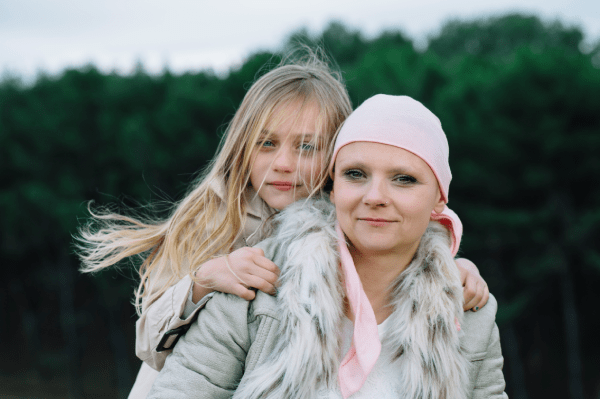
For Which Patients Is Surgical Treatment Suitable?
Surgical treatment is the main curative option, typically for early-stage NSCLC patients where the cancer is confined to a limited area of the lung and there is little or no spread to the lymph nodes. For the patient to be suitable for surgery, their general health must be good, and lung function tests must indicate that the remaining lung capacity after the operation will be sufficient. The decision for surgical suitability is made after detailed pulmonary function tests, cardiological evaluations, and staging. You can reach experienced surgical teams through Cure Holiday for the planning of such a major operation.
What Are The Minimally Invasive Surgical Techniques?
Minimally Invasive Surgical Techniques (keyhole surgeries) are widely used in modern lung cancer surgery. The most popular of these techniques include Video-Assisted Thoracoscopic Surgery (VATS) and Robotic Surgery. In these methods, the operation is performed by inserting special instruments and a camera through small incisions in the chest wall instead of a large cut. Minimally invasive techniques offer significant advantages such as less pain, smaller scars, shorter hospital stays, and faster recovery. Cure Holiday will assist you in finding centers that use these techniques for the comfort of your treatment process and your recovery speed.
How Is Radiation Therapy Applied And What Is Its Purpose?
Radiation Therapy aims to damage the DNA of cancer cells and destroy these cells using high-energy beams. In lung cancer, radiation therapy can be applied for different purposes: curatively for patients unsuitable for surgery in the early stage (such as SBRT), palliatively to alleviate symptoms like pain or bleeding in advanced stages, or in combination with surgery or chemotherapy to support the main treatment protocol. The duration and dose of the treatment are meticulously planned according to the cancer’s stage and type. Consult Cure Holiday to get detailed information about your treatment protocol.
What Role Does Chemotherapy Play In Lung Cancer?
Chemotherapy is a systemic treatment method that uses medications to kill cancer cells. In lung cancer, chemotherapy is used in various roles: neoadjuvant to shrink the tumor before surgery, adjuvant to reduce the risk of recurrence after surgery, or as part of the main treatment protocol in advanced disease, in combination with other therapies (immunotherapy, radiation). It is one of the fundamental treatment approaches, especially in Small Cell Lung Cancer, and aims to destroy cancer cells throughout the body. You can receive support from Cure Holiday experts regarding chemotherapy processes and side effect management.
What Is Smart Drug Treatment (Targeted Therapy)?
Smart Drug Treatment, or targeted therapy, involves using medications that target the growth and spread signals of cancer cells only, without harming normal cells. This treatment targets specific genetic mutations (such as EGFR, ALK, ROS1) on the surface or inside the cancer cells and is therefore only effective in patients with certain genetic subtypes of NSCLC. It can be taken orally in the form of tablets or capsules and generally has fewer side effects than chemotherapy. The effectiveness of this treatment is determined by the genetic analysis of the patient’s tumor. You can contact Cure Holiday for the coordination of these important genetic tests.
How Is Suitability For Targeted Therapy Determined?
Suitability for Targeted Therapy is determined by comprehensive genetic tests (molecular analyses) performed on the biopsy sample from the cancerous tissue or a blood sample. These tests look for specific genetic changes (mutations) that trigger the growth of cancer cells. The most commonly researched mutations are EGFR, ALK, and ROS1. The results of these tests indicate which smart drug the patient will respond to and allow for the personalization of the treatment decision. Cure Holiday will guide you to ensure these advanced tests are done accurately and promptly.
How Does Immunotherapy Treat Lung Cancer?
Immunotherapy is an innovative treatment method that empowers the patient’s own immune system to recognize and destroy cancer cells. Cancer cells use “checkpoint” proteins (such as PD-L1) to prevent immune cells from recognizing them. Immunotherapy drugs block these checkpoints, releasing the brakes on immune cells and allowing them to fight the cancer with full force. Immunotherapy can achieve more sustained responses with fewer side effects compared to chemotherapy, especially in advanced-stage NSCLC and some SCLC cases. Contact Cure Holiday for your immunotherapy options.
Is Immunotherapy Effective In Every Patient?
Although immunotherapy has revolutionized lung cancer treatment, unfortunately, it is not equally effective in every patient. The effectiveness of the drug is generally associated with biomarkers such as the presence and amount of the PD-L1 protein in cancer cells; patients with high PD-L1 levels are expected to respond better. However, other options like chemotherapy or targeted therapy are available for patients who do not respond to immunotherapy. Analyzing the cancer’s biomarkers before starting treatment is important. Cure Holiday will offer you support for biomarker tests and evaluating suitability for immunotherapy.
How Do Treatment Options Change According To Stage?
Treatment options in lung cancer fundamentally change according to the stage. The main treatment in Stage I and II is surgery, aimed at completely removing the cancer. Stage III (locally advanced) may require a very careful combination of surgery, chemotherapy, and radiation. Stage IV (metastatic) is primarily managed with systemic treatments (immunotherapy, targeted therapy, chemotherapy), and the goal is to slow the disease’s progression while enhancing the quality of life. Genetic and biomarker tests are performed at every stage to personalize the treatment. You can receive consultation from Cure Holiday to learn the most suitable treatment combination specific to your stage.
How Are Side Effects Managed During The Treatment Process?
Side effects during the lung cancer treatment process may occur depending on the method used (chemotherapy, radiotherapy, immunotherapy), and effective management is crucial for patient comfort. Nausea, vomiting, and fatigue caused by chemotherapy are managed with special medications, while swallowing difficulty caused by radiation is managed with diet adjustments. Possible autoimmune reactions associated with immunotherapy are controlled with drugs like cortisone. Access to comprehensive supportive care is critical for treatment adherence and quality of life. You can consult Cure Holiday for support in managing side effects.
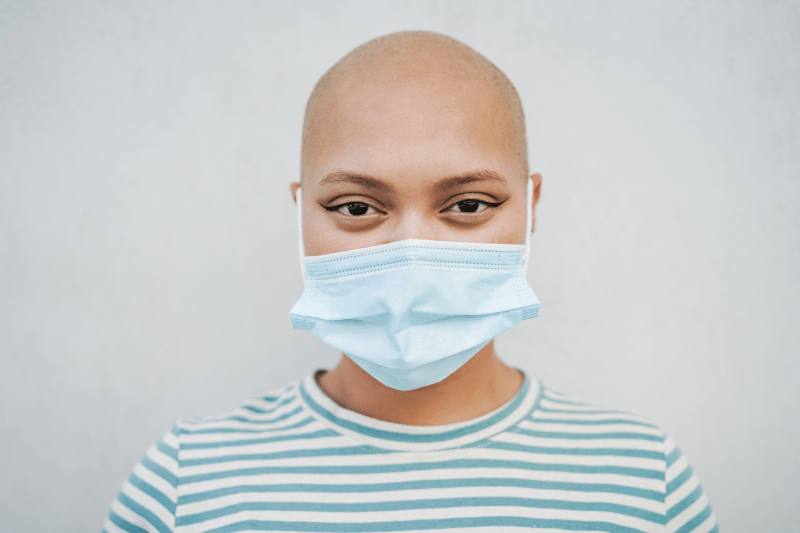
What Are The Most Common Side Effects Of Chemotherapy?
The most common side effects of chemotherapy arise from its effect on rapidly dividing healthy cells. These include hair loss, nausea, vomiting, loss of appetite, and fatigue. Additionally, due to a drop in blood cell counts, there is a risk of infection (white blood cells), anemia (red blood cells), and bleeding (platelets). Treatment-specific medications can significantly alleviate these side effects. Cure Holiday experts will assist you with information about the details and management of side effects before starting treatment.
What Are The Possible Side Effects Of Radiation Therapy?
The side effects of Radiation Therapy depend on the area irradiated and the dose applied. The most common side effects in lung cancer treatment include redness and irritation of the skin, difficulty swallowing (esophagitis) due to the effect on the esophagus, fatigue, and radiation pneumonitis (lung inflammation) which can emerge after the treatment ends. Modern radiotherapy techniques (IMRT, SBRT) aim to minimize side effects by sparing healthy tissue. You can contact Cure Holiday to get information about the management of side effects and the treatment process.
How Long Does The Recovery Process Take After Treatment?
The recovery process after treatment varies greatly depending on the method applied. Full physical recovery and return to normal activities after surgery usually take 4 to 8 weeks. The fatigue and other side effects caused by chemotherapy and radiation can sometimes take several months to completely resolve. Immunotherapy side effects may last longer. Regular physical activity, a balanced diet, and psychological support are important to speed up the recovery process. You can benefit from the guidance of Cure Holiday to plan your post-treatment recovery process most effectively.
What Is The Risk Of Recurrence And How Is It Monitored?
The risk of recurrence is the probability of the cancer returning after successful treatment and depends on the stage, type, and kind of treatment applied for lung cancer. This risk exists even in patients treated in the early stages. Regular follow-up programs are established after treatment to detect recurrence early. These programs typically include CT scans, blood tests, and physical examinations performed at more frequent intervals during the first 2-3 years. It is vital not to neglect long-term follow-up. You can consult Cure Holiday for recurrence monitoring and long-term surveillance protocols.
How Can I Improve Quality Of Life After Treatment?
Improving the quality of life after treatment is a process as important as the treatment itself. This requires focusing on both physical and emotional health. Regular and light exercises (like walking) increase energy and reduce fatigue. A balanced diet under the guidance of a dietitian helps the body repair itself. Psychological support and engagement (therapy, support groups) are effective in battling anxiety and depression. Cure Holiday can help you access comprehensive support programs to adapt to your new normal after the illness.
How Should Nutrition Be In Lung Cancer?
Nutrition plays a critical role in lung cancer treatment to support the patient’s immune system, alleviate the side effects of treatment, and prevent weight loss. A high-protein diet helps the body repair itself and prevents muscle loss. To combat side effects like nausea and loss of appetite, it is important to consume small and frequent meals. Ample fluid intake prevents dehydration. Each patient’s nutritional needs are different, and a personalized plan should be created by a dietitian. You can consult Cure Holiday experts for nutritional support and special diet programs.
Is Psychological Support Necessary During Treatment?
Receiving psychological support during treatment is absolutely necessary. A diagnosis and treatment of lung cancer is a major source of emotional burden and stress for patients and their families. Feelings like depression, anxiety, anger, and fear are normal, but they need to be managed. Onco-psychologists and support groups help patients cope with these emotions, maintain their quality of life, and adhere to treatment. Psychological support also positively affects physical recovery. You can seek help from Cure Holiday for psychosocial support services, which are an integral part of your treatment.
How Does Getting A Second Opinion Affect The Treatment Decision?
Getting a second opinion in complex and life-threatening diseases like lung cancer increases the patient’s and their family’s confidence and knowledge about the treatment options. A second opinion allows for the confirmation of the diagnosis and staging, learning about different treatment approaches (e.g., radiotherapy instead of surgery), and the interpretation of genetic test results. This opinion, usually obtained from a different specialist or institution, enables the patient to participate in the treatment decision more confidently. Cure Holiday can mediate for you to reach international experts for a second opinion.
Do Clinical Trials Offer New Treatment Opportunities?
Clinical trials offer new and promising treatment opportunities for patients whose standard treatment options have been exhausted or who have a low probability of benefiting from current treatments. These studies test the safety and efficacy of new drugs (immunotherapy agents, new targeted molecules) or new treatment combinations. Participating in clinical trials provides patients access to the latest scientific developments and methods that could potentially yield better results than standard treatments. It is recommended that you consult Cure Holiday experts to evaluate your eligibility for clinical trials.
What Is The Role Of Palliative Care In Lung Cancer?
Palliative care in Lung Cancer does not only mean end-of-life care; it is a supportive approach aimed at improving patient comfort and quality of life at every stage of treatment, starting from the moment of diagnosis. The management of symptoms such as pain, shortness of breath, fatigue, and nausea forms the basis of palliative care. Its goal is to meet the physical and emotional needs of the patient and their family and increase treatment adherence. Receiving palliative care support early significantly improves the quality of life. Cure Holiday will guide you to access comprehensive palliative care services.
How Does Quitting Smoking Increase Treatment Success?
Quitting smoking is the most critical step that significantly increases treatment success even after a Lung Cancer diagnosis. In patients who quit smoking, the effectiveness of chemotherapy and radiation therapy increases, and post-surgical complications and wound healing problems decrease. Furthermore, quitting smoking reduces the risk of forming a new cancer and the risk of disease recurrence. This decision rapidly improves the patient’s overall health and allows them to better withstand the treatment. Cure Holiday can provide you with the necessary guidance to access smoking cessation programs and support.
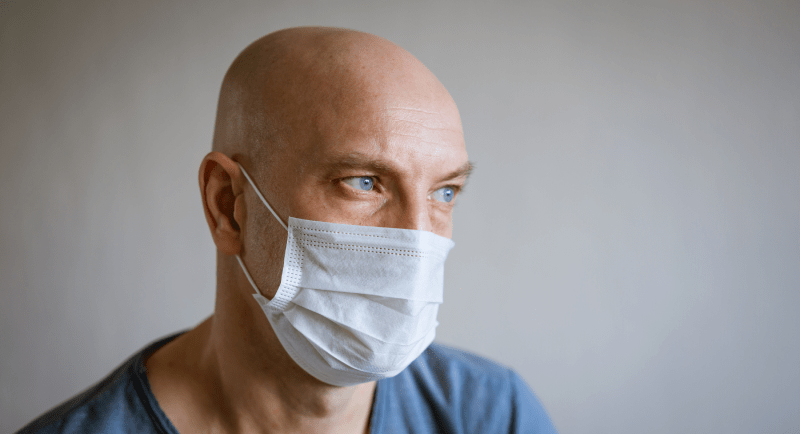
Is Robotic Surgery Used In Lung Cancer?
Yes, robotic surgery (robotic thoracic surgery) is being used with increasing frequency and success in lung cancer treatment. This method enhances the precision of minimally invasive operations by providing the surgeon with a better field of view (three-dimensional high-resolution imaging) and greater freedom of movement (flexibility of the robotic arms). Robotic surgery offers advantages similar to the traditional VATS method, such as less pain, shorter hospital stay, and faster recovery. You can contact Cure Holiday to research centers that utilize this advanced technology.
Is Stem Cell Therapy Applied In Lung Cancer?
Stem cell transplantation is not the standard treatment for lung cancer; however, Autologous Stem Cell Support may be applied for certain specific situations requiring High-Dose Chemotherapy (especially in advanced stages of SCLC). Stem cell therapy is in the research phase in the field of regenerative medicine to repair lung damage. Stem cell transplantation is more standardly used for blood cancers. The main methods used in lung cancer treatment are chemotherapy, radiation, targeted therapy, and immunotherapy. You can request up-to-date scientific information from Cure Holiday regarding alternative or research-stage treatment approaches.
Why Might Treatment Abroad Be Advantageous?
The search for treatment abroad is generally based on two main reasons: Cost and Access. Countries leading in health tourism, such as Turkey, offer high-quality, internationally accredited treatments at much more affordable prices compared to centers in the US or Europe. Furthermore, patients sometimes prefer going abroad to gain faster access to new treatment methods (such as certain immunotherapy protocols) that have long waiting times or are not yet approved in their home country. It is important to receive support from Cure Holiday for professional coordination of the treatment.
What Should Be Considered When Choosing A Treatment Center?
The most important factors to consider when choosing a treatment center are the center’s international accreditations (e.g., JCI), the presence of a team with high case experience in bariatric surgery, and the up-to-date technological infrastructure used (Robotic surgery, state-of-the-art radiotherapy devices, etc.). Additionally, the quality of international patient services (language support, accommodation, transfer) and the availability of long-term follow-up programs are also important. Cure Holiday will provide you with a transparent evaluation of reliable and high-standard centers.
What Do International Patient Services Cover?
International patient services are designed to make the treatment process for patients coming from abroad as smooth as possible. These services typically include airport transfers, accommodation arrangements, scheduling hospital appointments, professional medical interpretation support throughout the medical process, and the assignment of a personal patient representative. This comprehensive support reduces the stress associated with receiving treatment in a foreign country, allowing patients to focus entirely on recovery. You can contact Cure Holiday‘s experienced team to benefit from international patient services.
What Is Personalized Treatment In Lung Cancer?
Personalized treatment in lung cancer involves creating a special treatment plan based on the unique genetic and molecular characteristics of each patient’s tumor. This approach has been made possible by Targeted Therapies and Immunotherapy. By mapping the tumor’s genetic profile (mutation analyses), specific molecular pathways that enable cancer growth are identified, and only drugs that block these pathways are selected. Personalized treatment offers a higher chance of success and fewer general side effects compared to conventional chemotherapy. You can get information from Cure Holiday to find out your suitability for personalized treatment.
How Is Pain Management Handled During The Treatment Process?
Managing the pain that arises due to lung cancer and the applied treatments (surgery, radiation) is vital for maintaining the patient’s quality of life. Pain management is approached multidisciplinarily with various methods, not just medication, but also radiation, nerve blocks, and physiotherapy. Regular pain assessment and administering pain relievers at the right time and dose are essential. Physicians and palliative care teams create individualized plans to minimize pain. Cure Holiday can recommend the most suitable centers for effective pain management solutions.
Who Is Recommended For Early Detection Programs?
Early Detection Programs are recommended for individuals who are at high risk for lung cancer but do not yet show any symptoms. The foundation of these programs is the Low-Dose Computed Tomography (Low-Dose CT) scan. Typically, this scan is recommended annually for individuals between the ages of 50-80 who have a smoking history of at least 20 pack-years (current smokers or those who quit within the last 15 years). Early detection significantly increases the chance of catching the cancer at a very small and treatable stage. You can consult Cure Holiday to find out if you are in the risk group and to learn about screening protocols.
What Preparations Should Be Made Before Starting Treatment?
Preparations to be made before starting treatment vary according to the type of treatment but generally aim to bring the patient to their best physical and mental condition. Immediately quitting smoking is the first and most crucial step of this preparation. Nutritional status should be evaluated and supported by a dietitian. Dental check-ups and cardiological evaluations are also important to manage potential side effects. This comprehensive preparation process increases treatment adherence and success rates. Cure Holiday will guide you with a detailed preparation list before treatment.
What Factors Affect The Cost Of Treatment?
The cost of lung cancer treatment varies greatly depending on many complex factors. These factors include the stage and type of cancer, the main treatment method applied (surgery, immunotherapy, targeted therapy, radiation), the type and duration of the medications used, the hospital’s technological equipment, and the country where the treatment is received. The cost of new-generation immunotherapy and targeted drugs, in particular, can be high. You can contact Cure Holiday to get a transparent analysis of the total treatment cost and coverage under insurance/private health plans.
What Is The Patient’s Role In The Treatment Decision?
The patient’s role in the treatment decision has central importance in modern oncology. The physician presents the patient with all treatment options (risks, benefits, side effects, impact on quality of life) in an understandable language. The patient is an active decision partner in choosing which path to follow based on their values, lifestyle goals, and risk tolerance. This collaborative approach increases the patient’s adherence to treatment and satisfaction with the results. Cure Holiday will assist you with professional and ethical consulting services to support your treatment decisions.
What Is The Importance Of Genetic Tests In Lung Cancer?
Genetic tests in lung cancer are of vital importance, especially for Non-Small Cell Lung Cancer (NSCLC) patients, as they completely change the treatment strategy. These tests detect targetable mutations (such as EGFR, ALK) in tumor cells and biomarkers (PD-L1) that indicate the potential for response to immunotherapy. The results determine whether the patient is suitable for more effective and less toxic targeted therapies or immunotherapy instead of chemotherapy. The results of these molecular analyses enable the personalized drug selection specific to the patient. You can consult Cure Holiday for information about genetic testing processes.
